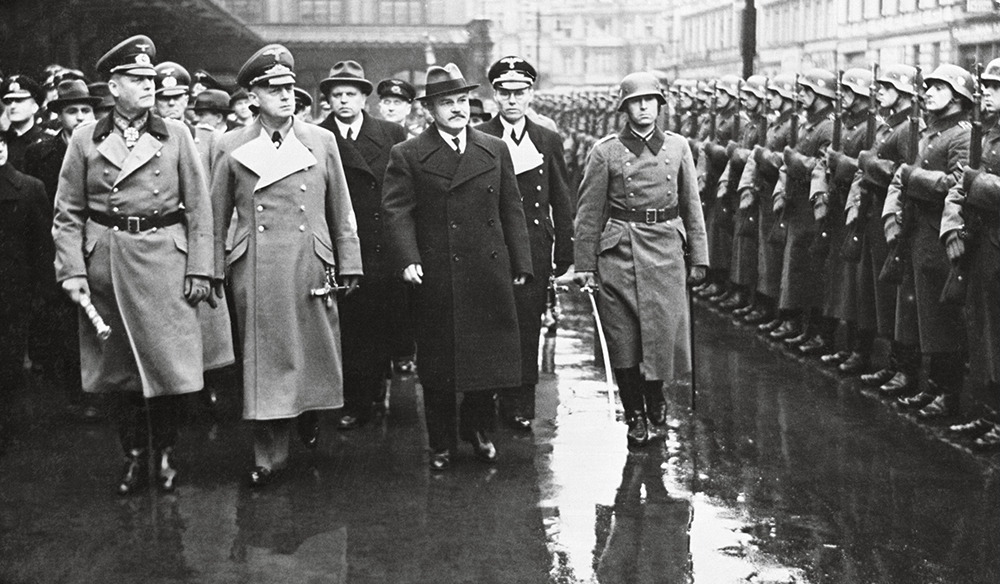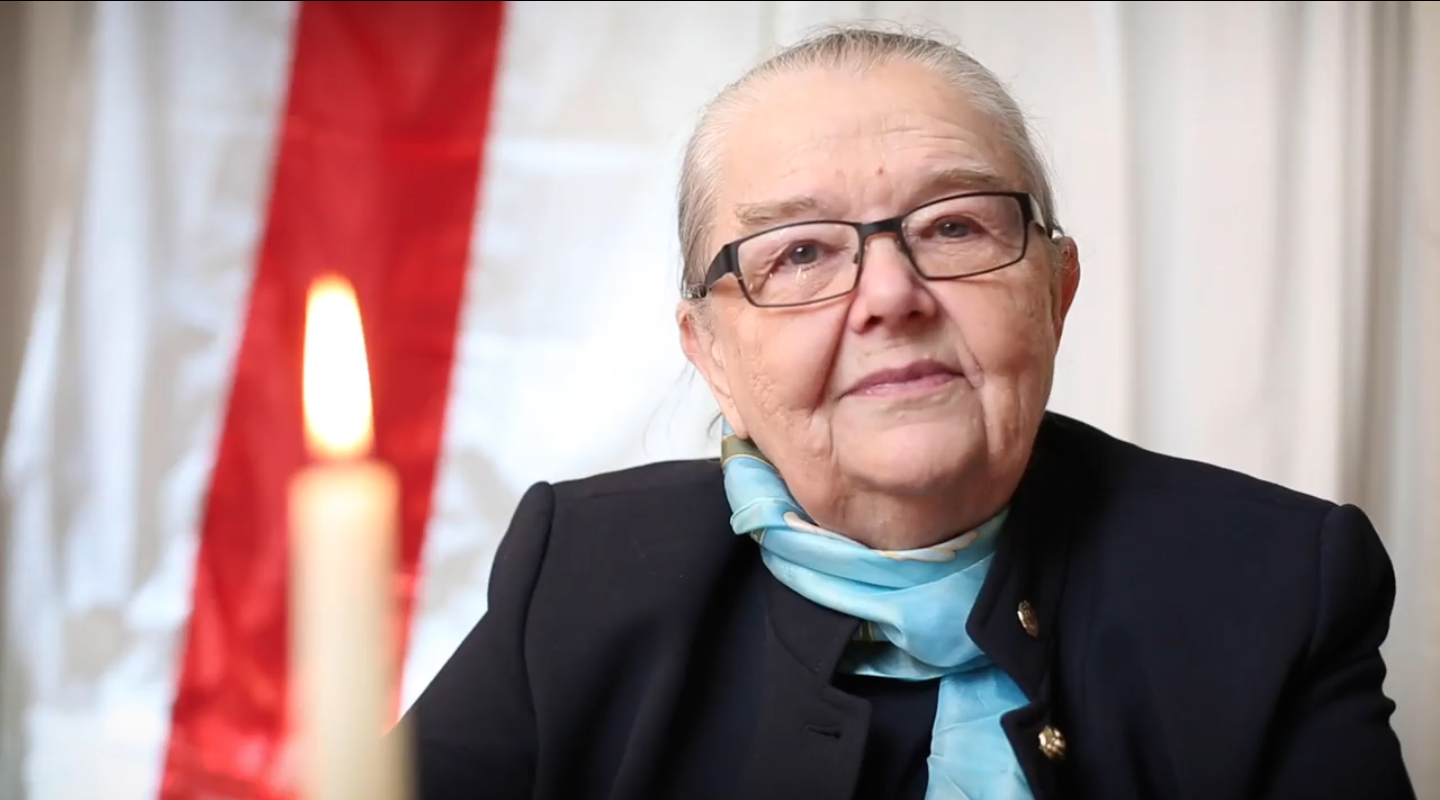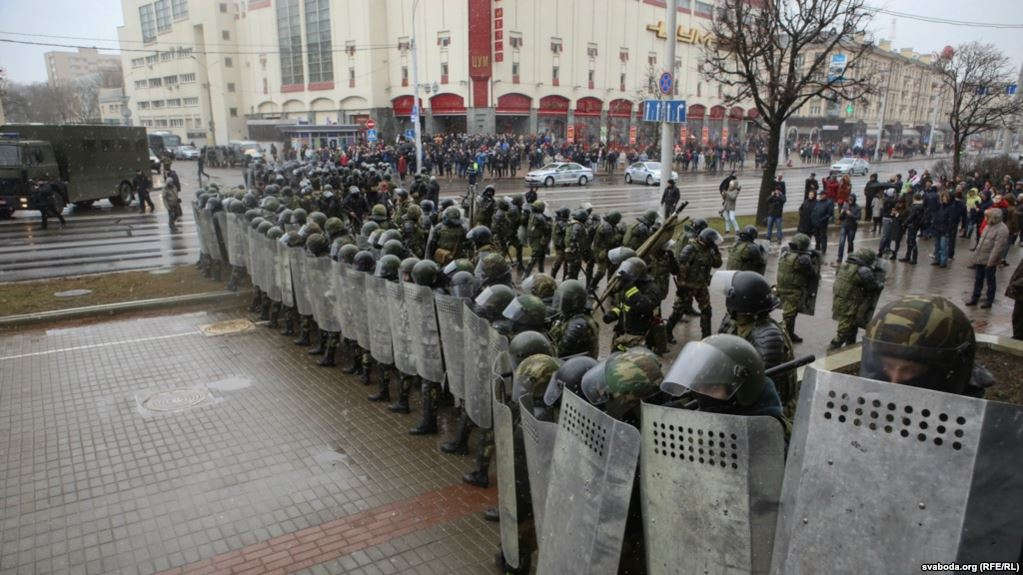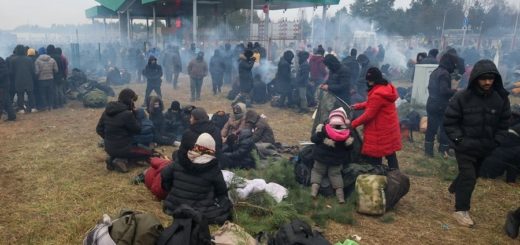Statement of the BNR Rada on the 80th anniversary of the Molotov-Ribbentrop Pact

The Molotov-Ribbentrop Pact symbolizes the tragedy of our region in the twentieth century. Millions of Eastern Europeans were exterminated by the Nazis and Communists because of their political views, ethnic or social origin. Millions died in the Second World War, which the totalitarian regimes in Germany and the USSR are responsible for starting.
On this day 80 years ago, the Soviet Union and Hitler’s Germany signed a non-aggression pact, the secret part of which provided for the division of Eastern Europe between these two totalitarian states. West Belarus, which at that time was under Polish control, came under the influence of the USSR, which at that time already controlled the eastern part of Belarus.
A week after the signing of the agreement, Germany attacked Poland, which was the beginning of the Second World War.
Two weeks later, the Soviet Union joined Hitler, attacking Poland from the east and de facto entering the Second World War on the side of Nazi Germany. In 1939-1941, the USSR captured West Belarus, Western Ukraine, Bessarabia and the Baltic states. Only Finland managed to defend its independence in an unequal war against the Soviet military machine.
The war between Germany and the USSR began in the summer of 1941, almost two years after the start of World War II. Belarus was occupied by German troops for three years. The German occupation was accompanied by the genocide of the Jewish population of Belarus, political terror, crimes against civilians.
The Molotov-Ribbentrop Pact symbolizes the tragedy of our region in the twentieth century. Millions of Eastern Europeans were exterminated by the Nazis and Communists because of their political views, ethnic or social origin. Millions died in the Second World War, which the totalitarian regimes in Germany and the USSR are responsible for starting.
Being under Soviet and Nazi occupation, Belarus and other countries of the region lost decades of free development.
Belarus suffered from Nazi and Soviet occupation more than many other countries. We have still not overcome the consequences of decades of repression and propaganda, which shaped several generations of Belarusians.
Soviet inertia in Belarus is embodied by the authoritarian and corrupt regime of Aliaksandr Lukashenka, whose ideology and management methods are primarily based on the legacy of the Soviet regime. At the early stage of his presidency, A. Lukashenka publicly expressed his admiration for the system of power built by Adolf Hitler in Germany. The years that followed after this scandalous statement confirmed the sincerity of this admiration.
At the same time, the terms of the Molotov-Ribbentrop Pact became an impetus for our neighbors to restore their independence from the USSR. These days, the Baltic countries are celebrating the thirtieth anniversary of the Baltic Way – an unprecedented peaceful protest action, which in 1989 united several million residents of these three Soviet-occupied countries in demanding freedom for their countries. The freedom movement in Latvia, the Republic of Lithuania and Estonia became a strong inspiration for Belarusians as well.
Despite terror and propaganda, our nations managed to survive and to revive their independence at the end of the twentieth century. This is a great historical victory, including that of the Belarusian people.
The Rada of the Belarusian Democratic Republic confirms its assessment of the Nazi regime in Germany and the communist regime in the USSR, given in the Statement to the 70th anniversary of the end of the Second World War (2015), the Declaration of Remembrance and Solidarity (2016) and other documents.
The BNR Rada strongly condemns the tacit rehabilitation of Stalinism, which has been taking place in Russia and, under its influence, in Belarus in recent years. The BNR Rada draws attention to the need for a legal and historical assessment of the actions of the Soviet regime in Belarus by analogy with the existing assessment of the crimes of the Nazi regime.
The BNR Rada declares that the future of Belarus must be built according to the values of freedom and democracy, with the indisputable priority of individual rights and the value of human life.
The BNR Rada draws attention to the exceptional importance of international solidarity and resolute international resistance to dictatorial regimes based on the values of freedom and democracy – both during World War II and now. Let the experience of the twentieth century be for humanity a reliable inoculation against totalitarianism.
(unofficial translation from Belarusian)
—
The Rada of the Belarusian Democratic Republic (the BNR Rada), founded in 1917, is the oldest active Belarusian governmental institution. Since 1918, the BNR Rada has served as the temporary supreme governing body of the Belarusian Democratic Republic, the first Belarusian democratic state whose independence was declared on 25 March 1918. The BNR Rada was forced to relocate from Belarus in 1919 due to the invasion by Soviet Russia and has been operating in exile ever since, now representing a more than a century old Belarusian democratic political tradition.



